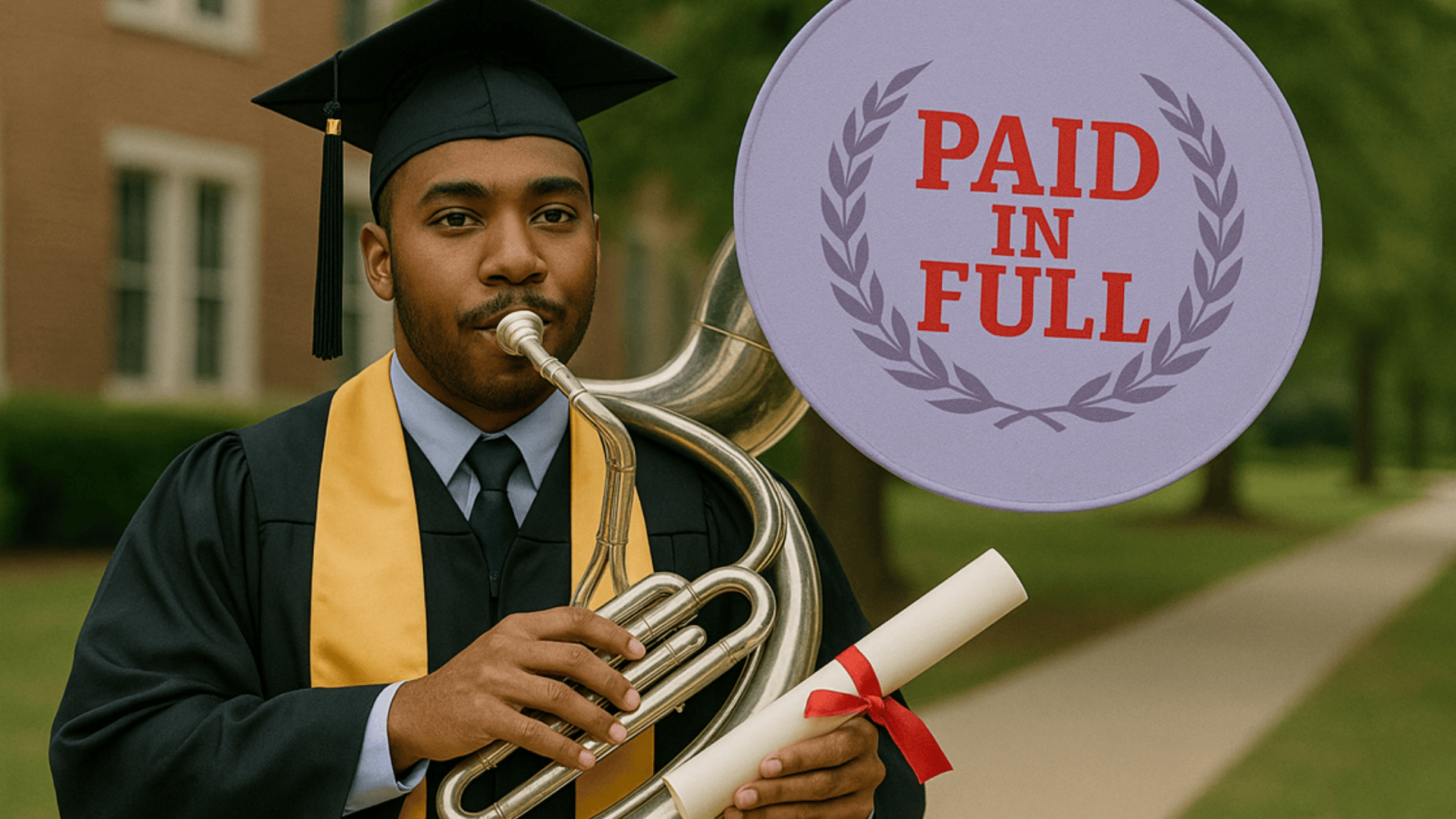×
Glossary
Audition: A performance evaluation used by colleges, conservatories, and music programs to assess a student’s musical ability. It’s often required for admission into music majors.
College Conservatory: A specialized school (often part of a university or independent) that offers intense, performance-focused training for musicians, dancers, and actors—such as Juilliard or the Shepherd School at Rice.
College of Liberal Arts: A university division that focuses on a broad education, including humanities, sciences, and arts. Many schools offer music degrees within their liberal arts program (e.g., Harvard, Stanford).
Cost of Attendance (COA): The full yearly cost of college, including tuition, room and board, books, supplies, travel, and personal expenses.
CSS Profile: A financial aid form required by many private colleges in addition to the FAFSA. It helps determine how much a family can pay and what grants/scholarships the student may receive.
Demonstrated Financial Need: The difference between a college’s cost and what a family can reasonably contribute. Many top schools commit to meeting 100% of this need through grants, not loans.
External Scholarships: Scholarships from organizations outside the college (e.g., Rotary Club, church groups, arts foundations) that help cover college costs.
FAFSA: The Free Application for Federal Student Aid, a government form used to apply for federal and state financial aid, including grants, loans, and work-study programs.
Federal Work-Study: A program that allows college students to earn money through part-time jobs on campus to help pay for college expenses.
First-Generation College Student: A student whose parents or guardians did not complete a four-year college degree. Many schools offer extra support for these students.
Full Cost-of-Attendance: When a college not only covers tuition, but also room, board, books, and other expenses through financial aid or scholarships.
Full Tuition: When a student’s tuition fees are completely covered by grants or scholarships, either through school programs or external funding.
Grants: Money for college that does not need to be repaid, often based on financial need.
Loan-Free Financial Aid: A financial aid package that replaces loans with scholarships or grants so students graduate without debt.
Music Major: A student who is earning a college degree in music—such as performance, music education, composition, or musicology.
Music Portfolio: A collection of performance videos, awards, programs, and teacher recommendations that represent a student’s musical achievements—used during the college application and audition process.
Performance Degree: A music degree focused on developing high-level skill on an instrument or voice, preparing students for professional careers on stage.
Room and Board: The cost of housing (dorm room or apartment) and food during college.
Scholarship: Financial support given to students based on talent, academics, financial need, or other achievements—does not have to be repaid.
Title I Campus: A public school that receives extra federal funding because a large percentage of its students come from low-income households.
Tuition-Free Program: A college financial aid model where students do not pay tuition—typically based on family income levels and/or academic merit.
Work Ethic: A student's discipline, responsibility, and persistence in practicing, studying, and showing up prepared—crucial for success in competitive music programs.


.png) ARTICLE GLOSSARY
ARTICLE GLOSSARY

.png)
.png)


.jpg)
.jpg)

.jpg)

.png)




.jpg)
.png)










.jpg)



.jpg)
.jpg)
.jpg)
.jpg)
.jpg)

.png)
.png)

